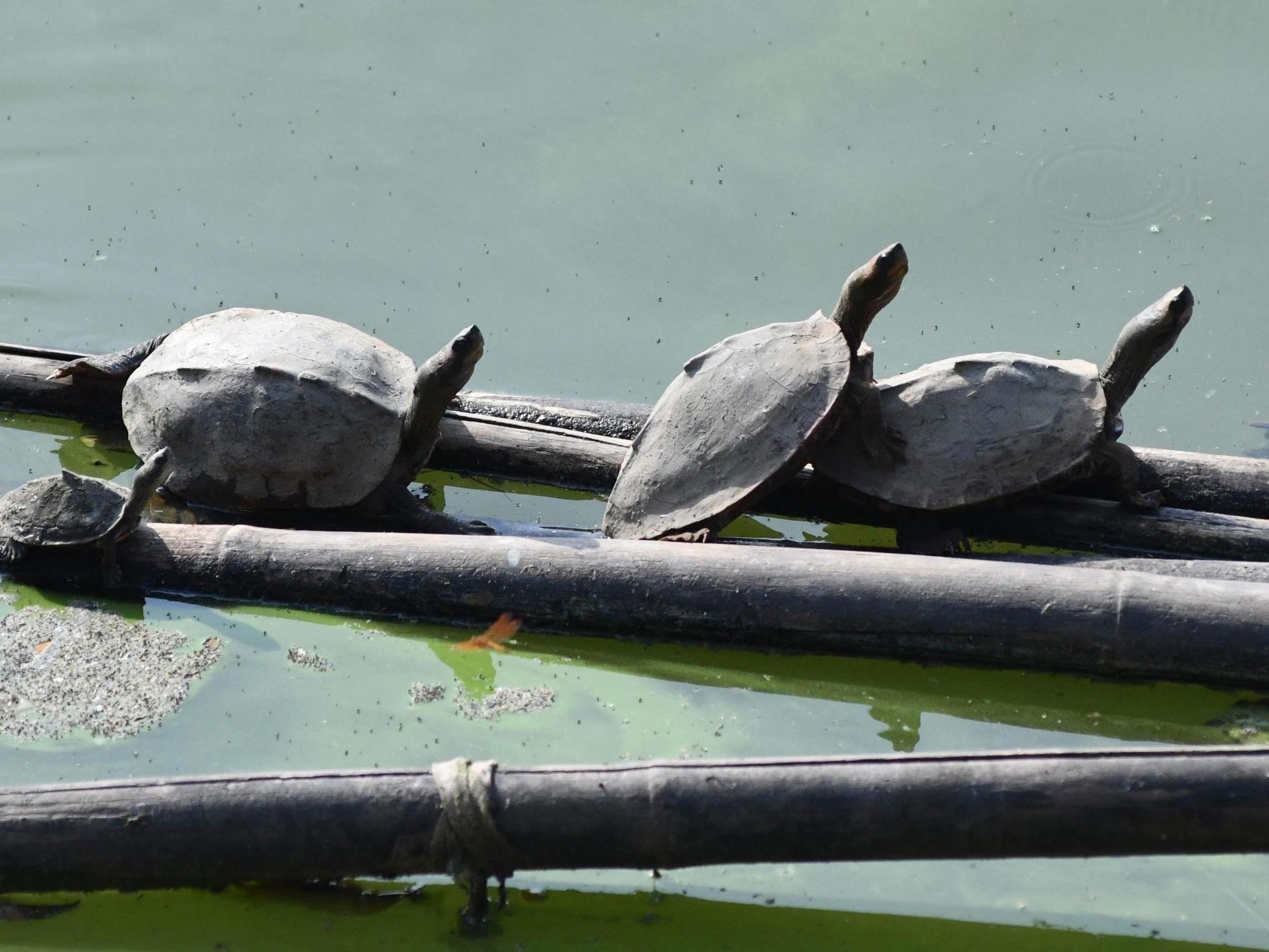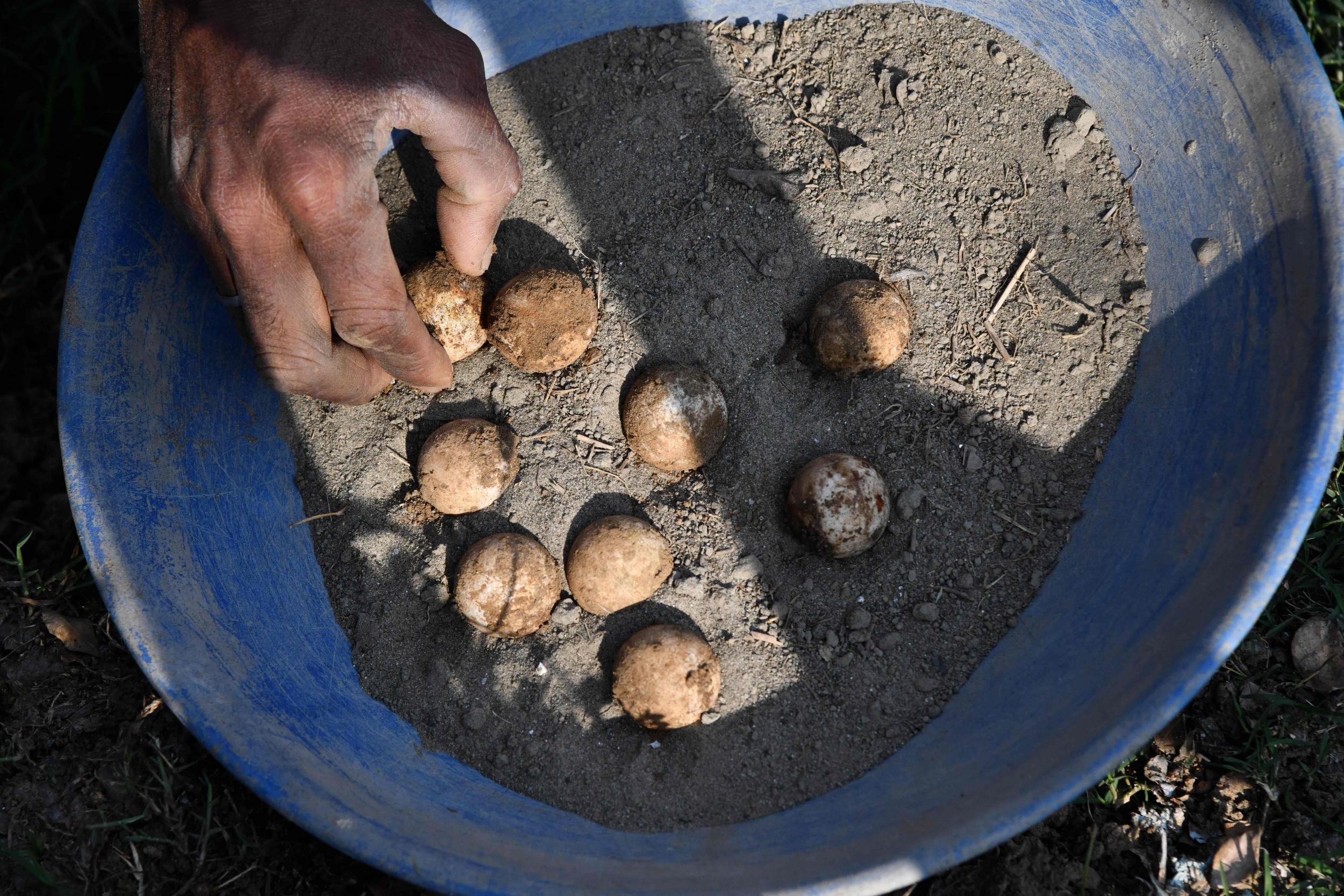Indian temple helps nurture ‘extinct’ turtle back to life
Black softshell turtle was believed to have been totally wiped out in wild by 2002

Your support helps us to tell the story
From reproductive rights to climate change to Big Tech, The Independent is on the ground when the story is developing. Whether it's investigating the financials of Elon Musk's pro-Trump PAC or producing our latest documentary, 'The A Word', which shines a light on the American women fighting for reproductive rights, we know how important it is to parse out the facts from the messaging.
At such a critical moment in US history, we need reporters on the ground. Your donation allows us to keep sending journalists to speak to both sides of the story.
The Independent is trusted by Americans across the entire political spectrum. And unlike many other quality news outlets, we choose not to lock Americans out of our reporting and analysis with paywalls. We believe quality journalism should be available to everyone, paid for by those who can afford it.
Your support makes all the difference.An “extinct” species of turtle is being reintroduced to the wild after a small population was found flourishing in a pond at an Indian temple.
The black softshell turtle (Nilssonia nigricans) was declared extinct in the wild 17 years ago by the International Union for Conservation of Nature. However, in Hayagriva Madhav temple in Assam, these reptiles are believed to be a reincarnation of Hindu deity Vishnu and so they are protected.
Jayaditya Purkayastha, from conservation group Good Earth which is working to protect the remaining turtles at Hayagriva Madhav temple, told AFP: “There are plenty of turtles in the temple pond.
“The population of the turtle in Assam has gone down by a great extent. So we thought we needed to intervene and do something to save the species from extinction.”
Mr Purkayastha, who is working with authorities at the Hayagriva temple, released 16 black softshells in a nearby wildlife sanctuary for the first time in January this year.

He collects eggs laid by females on the sandy banks of the pond and cares for them in an incubator. At least 40 turtles have been bred in the pond before being taken to Guwahati zoo where they are reared.
Freshwater turtles were once abundant in Assam but they were a popular local food and much of their habitat has been destroyed. The state has 20 out of 28 species of freshwater turtles and tortoises found in India
Two years after being declared extinct in the wild in 2002, some turtles were found in a few ancient ponds where they are fed by devotees. The discovery gave conservationists hope the species would not be lost altogether.
Conservationists at Good Earth have now identified 18 other ponds which could become sanctuaries for the rare turtles.
Pranab Malakar, who is caretaker at the pond at Hayagriva Madhav, says the turtles are respected and are also reliant on people feeding them bread.
“No one harms them here as they are incarnations of Lord Vishnu. I was born and grew up here. We have been seeing the turtles since our childhood,” he said.
Fifty per cent of fresh water turtle species are threatened with extinction.
Join our commenting forum
Join thought-provoking conversations, follow other Independent readers and see their replies
Comments